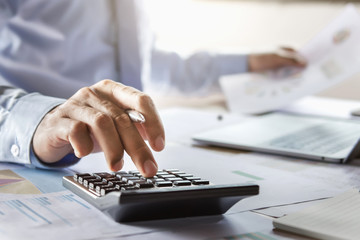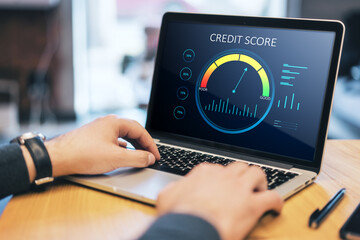Disclaimer, this post may contain affiliate links, which means I may earn a small commission for purchases made through the links at no additional cost to you.
Buying a house may be the largest purchase you will ever make in your life. It is no small feat and takes a lot of thought and consideration. There are three personal financials you need to know before buying a house.
To keep yourself organized on this journey, check out this House Hunting Organizer.
For more information on things to know before buying your first house read this blog post. Otherwise, read on to learn what three pieces of personal financial information you need to know before you buy a house.

My Experience
I am no expert in buying a house, as I’m currently in the process of buying my first house. I’m learning as I go and have obviously been through the preparation process before I started the house hunt.
This blog post is meant to help others who are preparing to buy their first house get their finances in order.
Know Your Savings
You need to know how much you have in your savings when buying a house. If you don’t have an idea of what you have saved, it’s gonna be more difficult to estimate your monthly costs and budget.
Remember closing costs also require up front cash. If you have $20,000 saved, don’t expect that to all go towards your down payment. You may have $10,000 in closing costs, so that would only leave you with $10,000 for a down payment. That can greatly affect your budget.
I was not aware of how steep closing costs were when I first started this process. If there’s anything you take away from this, remember closing costs exist and you have to budget for them.
This may mean you might have to save for a few more months before you’re ready to buy a house. That’s okay though, it’s better to know ahead of time. It would suck to find a house you love and not be able to afford it when you thought you could.

Your Budget
You should decide what your budget is before you start looking at houses. It would suck to fall in love with a house, only to find out it’s way over budget. This is why you need to know what price house you can afford.
I recommend to work backwards from a monthly payment to see what price you can afford. There are other items that are factored into your monthly payment, such as taxes, homeowners insurance and PMI (private mortgage insurance).
PMI is typically charged if you don’t have a 20% down payment. Some banks waive PMI, some charge it.
If you can find a bank that doesn’t charge PMI, it may be a good option to go with them. It can save you on your monthly payment. Banks that don’t offer PMI may charge higher interest rates though. You have to do your own due diligence and crunch the numbers.
Your Credit Score
You need to know what your credit score is. This is going to impact how much house you can get approved for and the interest rate the bank can offer you.
Along with how much debt you have, and your savings, your credit score also factors into your budget. The higher the credit score, the more house you can get approved for. The higher your credit, the better the interest rate the bank will offer you.
A better interest rate, means a better monthly payment. This means you can save money compared to your counterpart buying the same priced house with a lower credit score.

Conclusion
The three personal financials you need to know before buying a house include your savings, your budget and your credit score. If you get these in line and understand your personal situation, you will be in good shape to start your house hunting journey.
Click here to read more and follow along on my personal house hunting journey.
To keep yourself organized, check out this House Hunting Organizer.
Leave a Reply